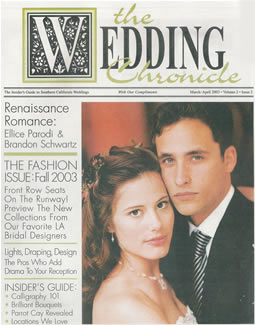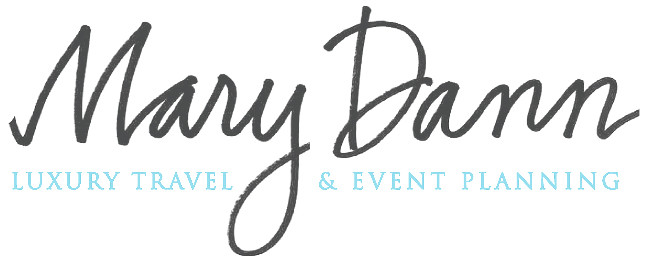The Wedding Chronicle – March 2003

Just because you have a beautiful hotel, country club, or home doesn’t mean the Catering Manager or catering company Event Coordinator will be a Professional Wedding Planner. A Catering Manager is employed by the venue and primarily specializes in food and beverage sales for the venue. They are usually there on your wedding day but often depart after the first course is served. A Wedding Planner is your personal consultant that interfaces with all aspects of the planning process and without hesitation. This person will mediate, negotiate and co-create with you and for you. Bottom-line: You employ the Planner and you don’t employ your Catering Manager. Knowing who will provide you with each of these services throughout the planning process will ensure no last minute surprises.
Your Catering Manager/Coordinator (usually) will:
* Provide a personalized tour of the venue
* Recommend special event professionals to provide wedding coordination, music,
florals, photography, ceremony officiation and invitations
* Act as a menu consultant for all food and beverage selections
* Detail your banquet event order/catering contract, outlining all of your event specifics
and ensure that it is communicated flawlessly to the operational team of the venue
* Create an estimate of charges outlining your financial commitments to the venue
* Create a floor plan of your function space, in order for you to provide seating
arrangements
* Arrange and attend your menu tasting
* Oversee the ceremony and reception room(s) set up, food preparation and other
venue operations
* Act as the on-site liaison between your Wedding Planner and venue operations staff
* Ensure a seamless transition to the venue’s Banquet Captain once the grand
entrance has occurred (typically this is when the Catering Manager leaves the
reception)
* Review your banquet checks for accuracy, prior to the completion of the final bill
Your Wedding Planner/Coordinator will:
* Assist with etiquette and protocol for invitations, family matters, ceremony and toasts
* Create a comprehensive time line for your rehearsal and wedding day, including the
ceremony and reception
* Work with you to organize and coordinate your ceremony rehearsal
* Remind bridal party of all pertinent “call times†and “don’t forgets†on the wedding
day
* Confirm “call times†and details with all vendors several days prior to the wedding day
* Be available to have conversation sin the evenings and weekends, long after your
Catering Manager has gone home
* Act as the liaison between your family, bridal party, band/DJ, florist, photographer,
videographer and other vendors to create a seamless operation
* Assist the bride and bridal party with dressing
* Ensure that the ladies have their corsages and bouquets, etc., and assist with the
pinning of boutonnieres
* Deliver and arrange ceremony programs, escort cards, place cards, favors and any
personal items
* Coordinate your actual ceremony (line up bridal party, assist bride with dress)
* Coordinate your reception (grand entrance, first dance, toasts and cake cutting, etc.)
* Collect any personal items you may have brought at the conclusion of the reception
* Assist you with full service coordinating from your engagement to your honeymoon
* Review your banquet check for accuracy’s at the end of the reception
* Establish room blocks at various hotels to ensure that your guests have
accommodations of their choice
* Create a vendor payment schedule, which includes all your vendors
* Review your catering contracts to ensure all your requests are communicated to the
Catering Manager
* Give a wide variety of professional referrals that fit with every kind of budget & taste
Understanding who is responsible for particular aspects of your wedding will help you achieve a smooth and successful event. Clear communication, defined tasks and specific attention to details will make all the difference in the world when it comes to enjoying your wedding day.
